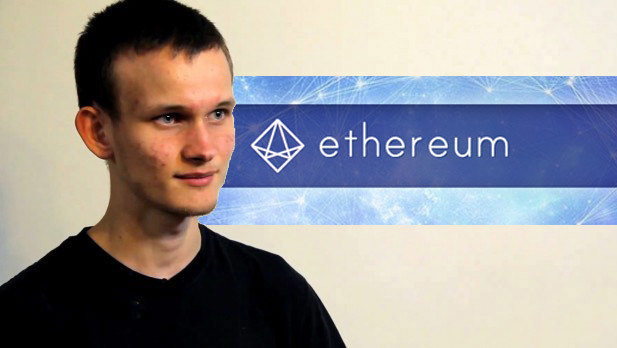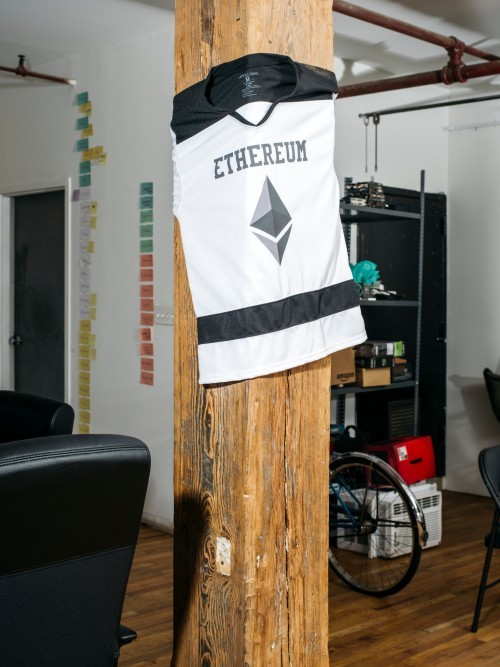Cryptocurrency Ethereum has grown 13 times in three months

It would seem that recently we celebrated that bitcoin has reached parity with the dollar , and now it has dropped from $ 1,000 to $ 420, incidentally spawning more than 700 clones based on the blockchain.
One of the relatively new Ether cryptocurrencies on the Ethereum platform for three months of 2016 added approximately 1200% in value (an increase from January-March from 0.002 BTC to 0.026 BTC), and according to market capitalization ($ 882 million) came in 2nd place after Bitcoin ($ 6.5 billion), significantly ahead of Ripple ($ 273 million) and Litecoin ($ 148 million).
')
The success of Ethereum was predictable.
Recently, Ethereum has attracted the interest of such giants as JPMorgan Chase, Microsoft and IBM. They view this platform as an improved version of Bitcoin, a kind of Bitcoin 2.0, writes the NY Times. Experts believe that the success of Ethereum is due, among other things, to technical difficulties in processing Bitcoin transactions and the split within the Bitcoin community , which is why some investors and businesses chose to look for alternative cryptocurrencies for their projects.
Like Bitcoin, Ethereum works on a publicly available blockchain, but offers something more than Bitcoin — programmable transactions called smart contracts , which the Canadian programmer, a Russian-born child prodigy Vitalik Buterin, implemented in 2013. The winner of the Olympiad in Mathematics and Programming, abandoning his studies at the university, at the age of 19 he created the Ethereum platform, which can now make a small revolution in the financial industry and the cryptocurrency market.

Vitalik Buterin
A smart contract is an electronic algorithm that describes a set of conditions whose fulfillment entails certain events in the real world or digital systems. Thus, many types of contractual relations can be partially or fully self-fulfilling , for example, insurance payment, tax payment, salary transfer, payout in a bookmaker office or a multiplied contribution in a MMM type financial pyramid - everything is done automatically.
In addition, on the Ethereum platform, anyone can issue their own cryptocurrency. This is useful for startups, various bonus programs, etc. To release your cryptocurrency does not require special programming skills. IBM is even experimenting with Ethereum for use on the Internet of Things .
“We did a great job in developing the platform,” said Vitalik Buterin in an interview a year and a half ago. - Now we need applications. It may take several years to find the main application of this system. As, for example, the power of social networks did not immediately become clear. ”
Vitalik Buterin and co-founders of the company attracted investments for the development of the platform and labor remuneration for the cost of $ 18 million through pre-mining and pre-selling Ether coins. In the same way, other start-ups can self-finance themselves by issuing their cryptocurrency stocks.
At the beginning of 2016, several dozen applications for Ethereum have already been created - and the project has finally taken off.
The NY Times newspaper talks about one of the companies ConsenSys, which creates applications for Ethereum.

Founder of ConsenSys, Joseph Lubin (right) and Director of Corporate Business Development, Andrew Case (left)
The founder of ConsenSys is Joseph Lubin. He helped Vitalik at the start of Ethereum, and now he has recruited about 50 programmers and releases applications for the Ethereum system, including distribution and automatic payment for music, a new type of financial audit, and so on. Some applications may be delivered by direct orders of corporations.
ConsenSys Office


So far, Ethereum is an experimental technology, compared to reliable Bitcoin. The future of Vitalik Buterin’s project depends on the infrastructure around him, whether banks will begin to use the block chain and release their own independent cryptocurrencies on the Ethereum platform. In any case, it is believed that this is the most interesting project on the cryptocurrency market since the advent of Bitcoin in 2009.
Source: https://habr.com/ru/post/392243/
All Articles